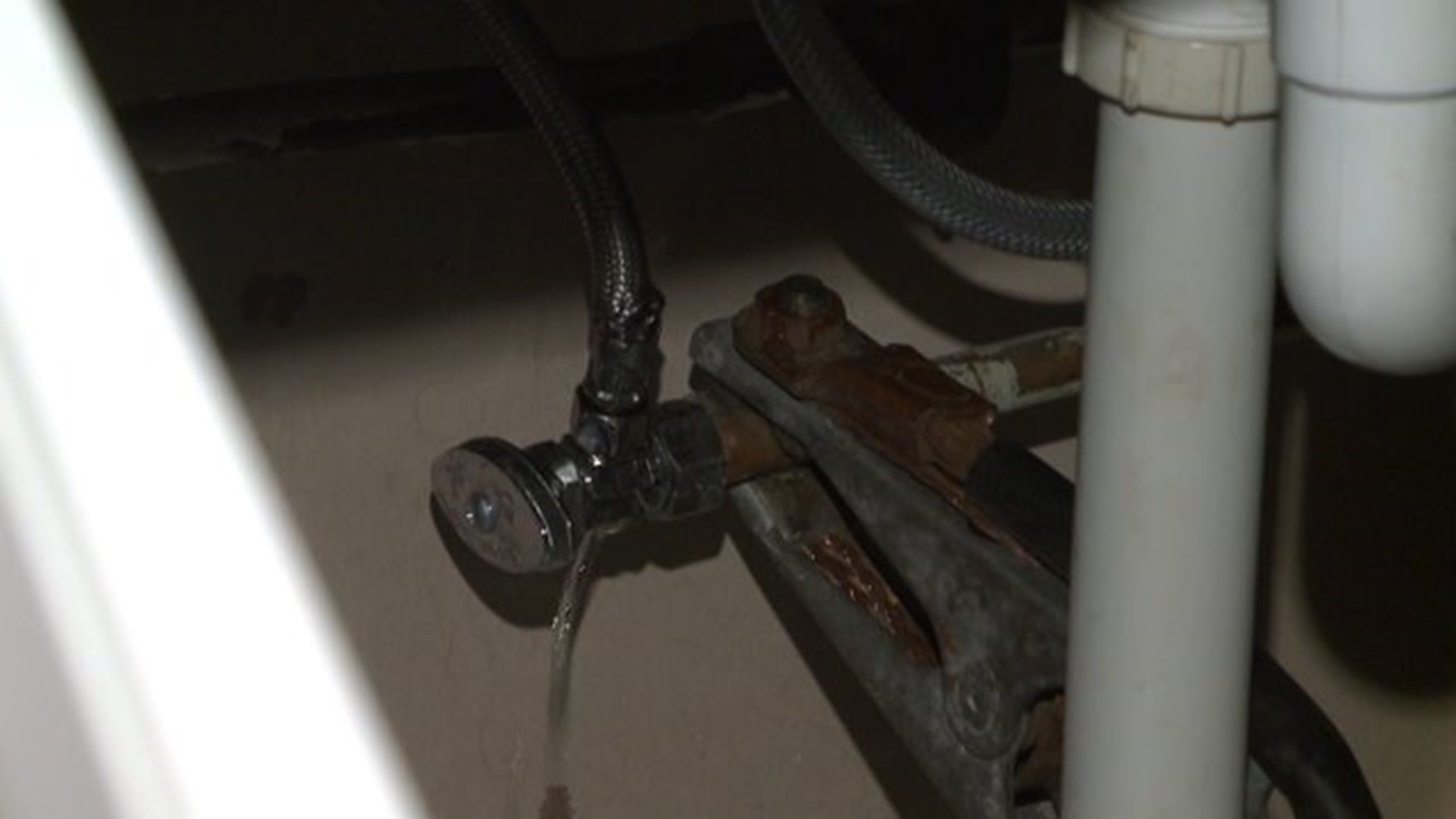FARMINGTON -- When the weather gets colder, the phones don't stop ringing off the hook for local plumbers and contractors.
Pipes and plumbing will start to freeze as temperatures remain low across the state, resulting in burst pipes and flooded out homes.
William Perleoni, who owns a Farmington plumbing company, got ready this week for the expected freeze.
If you listen to any advice, Perleoni says it should be this: "Never ever turn your heat down, especially in an event like this with wind. Wind is the biggest enemy."
He also cautions to insulate vulnerable pipes such as ones next to windows, in unheated rooms or basements, or where there's a trickle of leaking water that can freeze. If you don't have proper insulation, use newspaper or fabric. Also seal any cracks to the outside in areas near pipes.
Besides pipes, also watch out for water meters, which can freeze as well and cost a lot to repair.
It's also important to remember to know the location of your water main, according to Connecticut Water, so you can immediately turn it off if a pipe does burst.
Here are a few tips from the American Red Cross on how to deal with freezing pipes:
- Keep garage doors closed if there are water supply lines in the garage.
- Open kitchen and bathroom cabinet doors to allow warmer air to circulate around the plumbing. Be sure to move any harmful cleaners and household chemicals out of the reach of children.
- When the weather is very cold outside, let cold water drip from the faucet served by exposed pipes. Running water through the pipe -- even at a trickle -- helps prevent pipes from freezing.
- Keep the thermostat set to the same temperature both during the day and at night. By temporarily suspending the use of lower nighttime temperatures, you may incur a higher heating bill, but you can prevent a much more costly repair job if pipes freeze and burst.
- If you will be going away during cold weather, leave the heat on in your home, set to a temperature no lower than 55 degrees.
To thaw frozen pipes:
- If you turn on a faucet and only a trickle comes out, suspect that you may have a frozen pipe. Likely places for frozen pipes include against exterior walls, or where your water service enters your home through the foundation.
- Keep the faucet open. As you treat the frozen pipe and the frozen area begins to melt, water will begin to flow through the frozen area. Running water through the pipe will help melt ice in the pipe.
- Apply heat to the section of pipe using an electric heating pad wrapped around the pipe, an electric hair dryer, a portable space heater (kept away from flammable materials), or by wrapping pipes with towels soaked in hot water. Do not use a blowtorch, kerosene or propane heater, charcoal stove, or other open flame device.
- Apply heat until full water pressure is restored. If you are unable to locate the frozen area, if the frozen area is not accessible, or if you can not thaw the pipe, call a licensed plumber.
- Check all other faucets in your home to find out if you have additional frozen pipes. If one pipe freezes, others may freeze, too.
Click here for more tips and DIY techniques.

